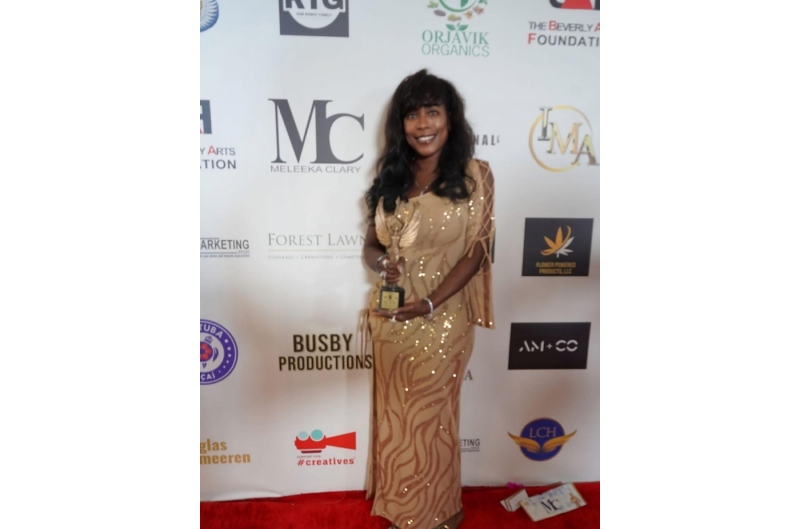Beyond the Screen: Dr. Meleeka Clary on Film, Psychology, and Advocacy

Interviewer: Dr. Clary, you wear many hats—psychologist, filmmaker, talk show host, and advocate. How do you see these roles intertwining in your work?
Dr. Meleeka Clary: They all connect through a common purpose—truth and empowerment. My background in psychology allows me to understand human behavior deeply, but I didn’t want to limit my impact to just a clinical setting. Filmmaking gives me a powerful medium to tell real stories that people can relate to, while my talk show provides a platform for raw discussions on issues that need to be addressed. Advocacy naturally followed because I’ve witnessed firsthand the flaws in our systems, and I refuse to stay silent.
Interviewer: Your talk show, The Dr. Meleeka Clary Show, recently earned you the Best Host award on Bold Brave TV at the Luxury Gala 2025. How does it feel to receive such recognition?
Dr. Clary: It’s truly an honor. This award represents more than just my work—it’s a testament to the stories we share and the change we are striving to make. The show isn’t about entertainment alone; it’s about healing, awareness, and empowerment. Having my daughters, Cradeaja and Meleesha Clary, along with my wonderful colleagues Mary Skirett, Lance Laconi, Esther Erousseau, and Rhea Nannan, celebrate with me made it even more special.
Interviewer: What inspired you to create The Dr. Meleeka Clary Show?
Dr. Clary: I wanted to create a space where people could openly discuss real-life experiences—whether it’s mental health struggles, systemic injustices, or personal transformations. So many individuals go unheard, and this show gives them a voice. My goal is for viewers to walk away not just informed but also empowered to make changes in their own lives.
Interviewer: Your film, Three Corners of Deception, is deeply personal. Can you share the motivation behind it?
Dr. Clary: The film is more than a story—it’s a testimony. It’s based on my own experiences with betrayal, manipulation, and the legal system’s flaws. Instead of being a victim of those circumstances, I chose to channel my pain into art that educates and inspires. People need to recognize red flags, understand their rights, and fight back when they face injustice.
Interviewer: Speaking of justice, you’ve been vocal about the systemic failures you’ve encountered. What changes do you hope to see?
Dr. Clary: There needs to be greater accountability and transparency. Many people suffer because they don’t understand the legal system or their rights. My mission is to expose these injustices, educate individuals, and push for reform. The more we talk about these issues, the closer we get to meaningful change.
Interviewer: You’ve spoken about faith being a driving force in your life. How has it influenced your journey?
Dr. Clary: My faith is my foundation. Every challenge I’ve faced has tested me, but my belief in God has given me the strength to keep pushing forward. Faith transforms pain into purpose, and it’s what fuels my mission to help others find their own strength.
Interviewer: Your storytelling goes beyond surface-level narratives, incorporating deep psychological themes. How does your background in psychology shape your creative work?
Dr. Clary: Psychology is at the core of everything I do. Understanding trauma, resilience, and human behavior allows me to create characters and narratives that truly resonate. Whether through film or interviews, I aim to bring emotional depth that not only entertains but also heals and educates.

Interviewer: What legacy do you hope to leave behind?
Dr. Clary: I want to be remembered as someone who never gave up—who used her voice to make a difference, no matter how many obstacles stood in the way. My legacy isn’t just about films, shows, or awards—it’s about inspiring others to stand up for themselves, embrace resilience, and fight for what’s right.
Interviewer: Dr. Clary, your work is inspiring. Thank you for sharing your journey with us.
Dr. Clary: Thank you. My hope is that others feel empowered to find their voice and use it fearlessly. Change starts with one voice—but when we come together, we create a movement.


